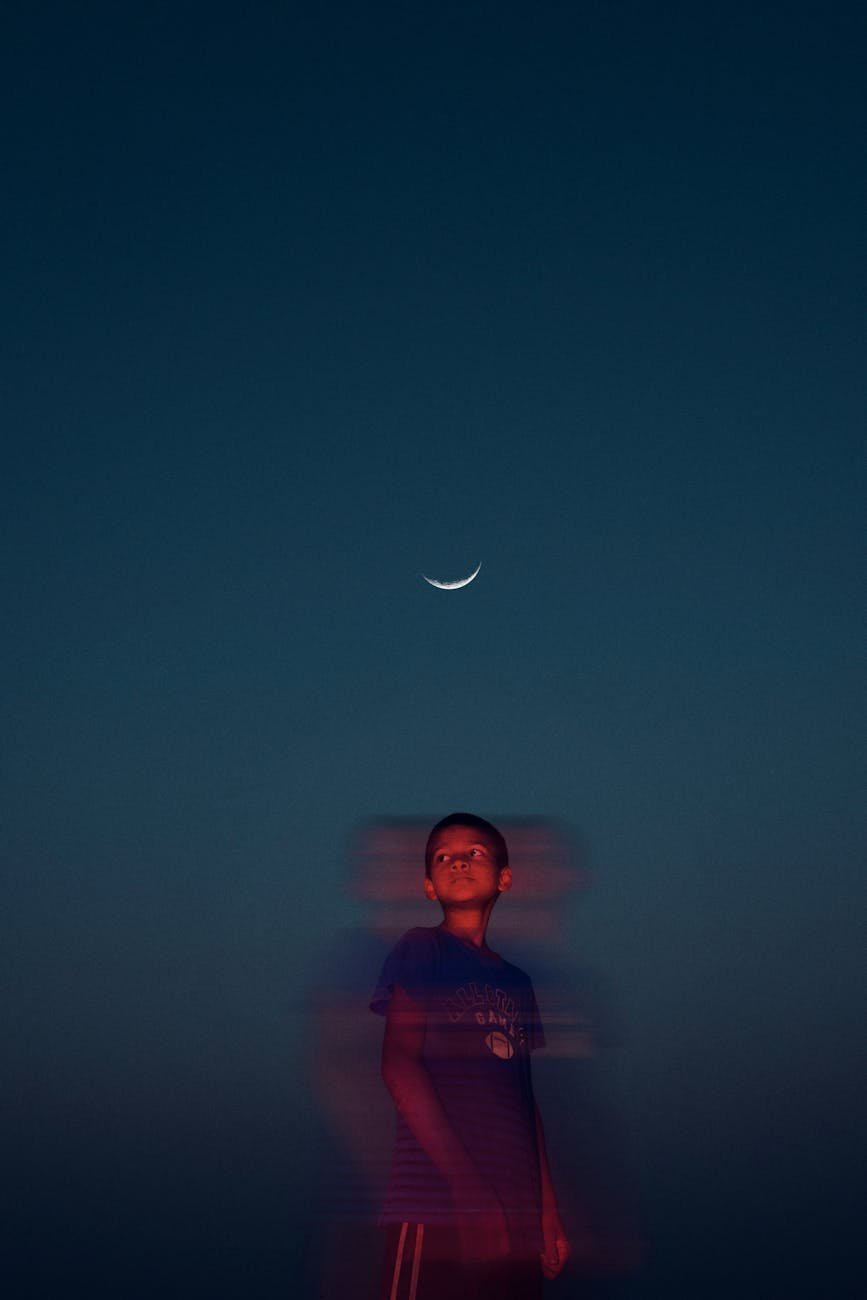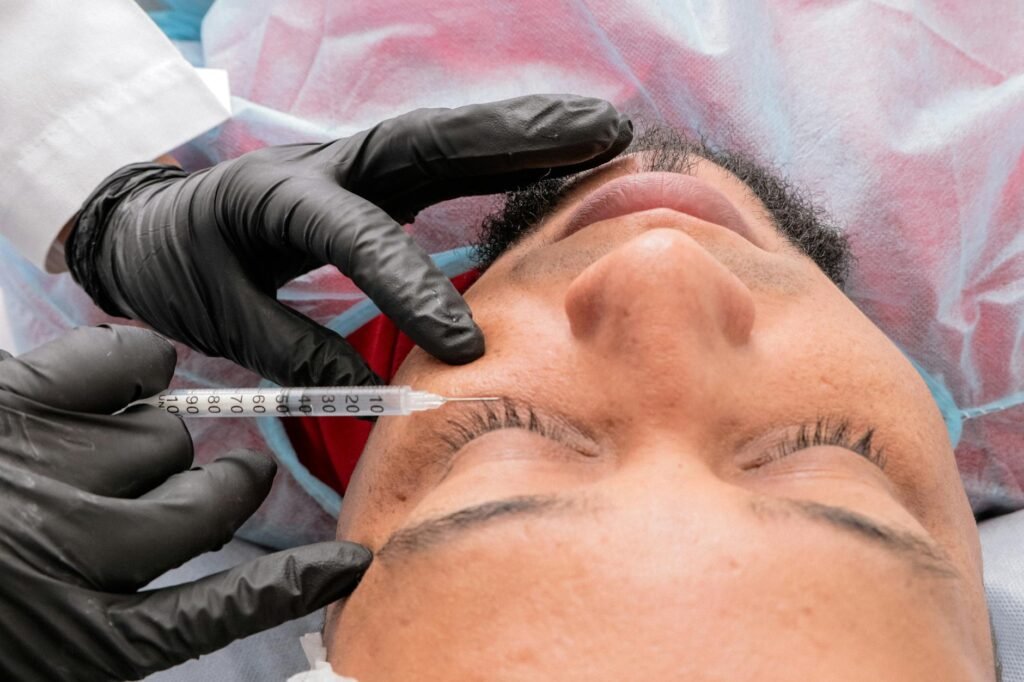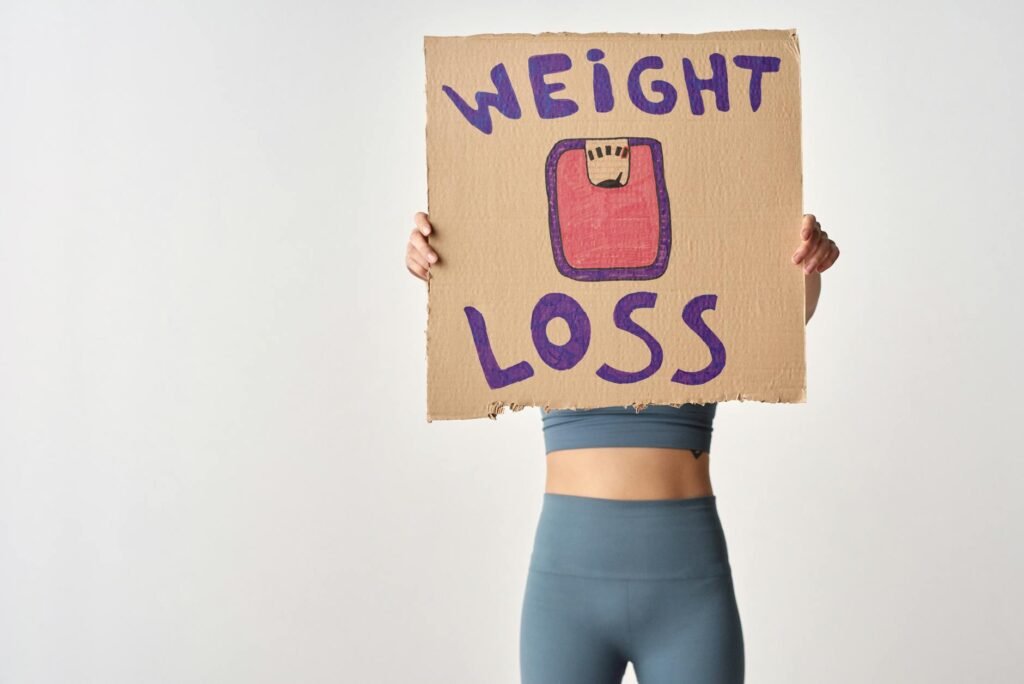Understanding Melatonin
Role of Melatonin in Sleep
Melatonin is like your body’s natural bedtime whisperer, produced by the brain when darkness falls. It’s the hormone that nudges you towards sleep, helping to keep your sleep schedule on track. The pineal gland kicks into gear as the sun sets, releasing melatonin to signal snooze time. This helps align your sleep-wake cycle, making it easier to drift off and stay in dreamland (NCCIH).
But here’s the kicker: bright lights at night can mess with melatonin production, making it challenging to catch those Zs. That’s why dimming the lights before bed is a smart move. Melatonin does more than regulate sleep; scientists are still piecing together the whole picture.
Melatonin and Circadian Rhythms
Circadian rhythms are like your body’s internal clock, ticking away to keep your daily biological processes in check, including sleep. Melatonin is the conductor of this orchestra, syncing up the central circadian pacemaker and the peripheral cellular clocks. This harmony is essential for older folks, helping smooth out circadian hiccups (NCBI).
Melatonin’s role in circadian rhythms keeps your sleep-wake cycle steady. It helps lock in a 24-hour rhythm, boosting sleep quality and mood. Research shows that melatonin therapy can help regularize sleep times for both older adults and those with dementia who struggle with sleep (NCBI).
| Age Group | Melatonin Production | Sleep Quality |
|---|---|---|
| Young Adults | High | Good |
| Middle-Aged Adults | Moderate | Fair |
| Elderly | Low | Poor |
Melatonin also acts as an anti-inflammatory agent, tackling free radicals, calming down proinflammatory cytokines, and easing insulin resistance. This makes it a safe bet for treating sleep issues in older adults.
Want to dive deeper into melatonin’s impact on sleep and health? Check out our articles on melatonin side effects and melatonin for anxiety.
Melatonin and Dreaming
Melatonin, the sleepy-time hormone from the pineal gland, is your body’s natural lullaby, helping you catch those Z’s and keeping your internal clock ticking. But did you know it also jazzes up your dream world, making it more memorable and intense?
Impact of Melatonin on Dream Memory
Melatonin’s got a knack for messing with your dream memory. In ’87, some brainiacs discovered that melatonin lets loose vasotocin during REM sleep. This sneaky substance helps clean your dream slate, leading to dreams as vivid as a technicolor movie. Pop a melatonin supplement, and you might find yourself in a longer, more intense dreamland.
Fast forward to ’98, and another study showed melatonin’s role in tweaking your brain’s memory systems. Folks with schizophrenia might have trouble with vasotocin doing its thing, leaving them with dream memories that stick around like unwanted guests. This can make it tricky for the brain to sort out what’s real and just a dream.
Melatonin and Dream Intensity
Taking melatonin can crank up your REM sleep, turning your dreams wild. It’s like your body’s internal DJ, syncing your rhythms with the world around you. Some folks find their dreams become more vivid or intense, like a blockbuster movie with all the special effects. But don’t worry; not everyone gets the whole IMAX experience with melatonin (Sleep Care Pro).
In 2015, a case report threw a spotlight on melatonin’s link to nightmares. A person battling insomnia found themselves in a nightmare loop after taking a medication that played with melatonin receptors. Once they ditched the meds, the nightmares took a hike, showing melatonin’s hand in the dream game during REM sleep.
| Study Year | Finding |
|---|---|
| 1987 | Melatonin releases vasotocin during REM sleep, leading to vivid dreams. |
| 1998 | Melatonin affects memory systems, impacting dream memory. |
| 2015 | Melatonin is linked to intense nightmares in a case report. |
Curious about more melatonin magic? Check out our articles on melatonin side effects and melatonin for anxiety.
Melatonin Supplementation
Benefits of Melatonin for Sleep Quality
Melatonin, the sleepy-time hormone from the pineal gland, is your body’s natural lullaby. It’s the secret sauce for regulating when you hit the hay and rise and shine. If you’re tossing, turning, or counting sheep all night, melatonin might be your ticket to dreamland. A study from 2013, with a whopping 1,683 insomniacs, showed that melatonin helped folks snooze better, catch more Z’s, and doze off quicker. This means more chances for those wild REM dreams where you might be flying or fighting dragons.
Melatonin works best when the sun goes down, syncing up with your body’s internal clock. Some research says it can add about 24 minutes to your daytime nap, but don’t bet the farm on it. It’s the nighttime sleep where melatonin shines, making it a handy helper for better sleep overall.
| Benefit | Description |
|---|---|
| Improved Sleep Quality | Makes your sleep more refreshing and peaceful. |
| Increased Total Sleep Time | Lets you snooze longer, giving you more rest. |
| Reduced Sleep Onset Latency | Helps you fall asleep faster, cutting down on tossing and turning. |
Melatonin Dosage and Timing
Getting the most out of melatonin is all about how much you take and when you take it. Experts say popping up to 3 mg about half an hour before you hit the sack can boost your sleep without turning your dreams into a horror show (Sleep Care Pro). Go overboard, and you might find yourself in a dreamland that’s too vivid for comfort.
Melatonin is like your body’s timekeeper, syncing your sleep schedule with the world around you. This is key for keeping your sleep-wake cycle on track and ensuring you catch those Z’s when you should. For more on how much melatonin to take, check out our guide on melatonin dosage for sleep.
| Dosage | Timing | Effect |
|---|---|---|
| Up to 3 mg | 30 minutes before bedtime | Boosts sleep quality without nightmare fuel |
| Higher doses | 30 minutes before bedtime | Might lead to dreams that are a bit too wild |
During REM sleep, melatonin levels can bounce around, affecting how crazy your dreams get. More melatonin might mean more vivid dreams, while less could make them fade into the background (Cancer Center for Healing). So, getting your melatonin dose right is key for solid sleep and dream adventures.
If you’re curious about how melatonin can help with anxiety or jet lag, knowing the correct dose and timing is crucial for getting the desired results.
Melatonin and Sleep Disorders
Melatonin, the sleepy-time hormone from the pineal gland, is like your body’s natural lullaby, helping you catch those Z’s. It’s been getting some attention for its potential to help folks with sleep issues like insomnia and those pesky circadian rhythm disorders.
Melatonin for Insomnia
Insomnia is annoying when you just can’t seem to drift off or snooze. Melatonin might be your new best friend here. A significant study in 2013 looked at 1,683 people struggling with insomnia and found that melatonin helped them sleep better, longer, and faster. So, if you’re dreaming of more dreams, melatonin might be the ticket.
| Study | Participants | Sleep Quality Boost | Longer Sleep | Faster Sleep Onset |
|---|---|---|---|---|
| 2013 Meta-Analysis | 1,683 | Yes | Yes | Yes |
Are you thinking about trying melatonin for insomnia? Experts suggest taking up to 3 mg about half an hour before you hit the hay. This dose can help you sleep soundly without turning your dreams into nightmares (Sleep Care Pro). Curious about the right amount for you? Check out our guide on melatonin dosage for sleep.
Melatonin for Circadian Rhythm Disorders
Circadian rhythm disorders are like your body’s clock being out of sync with the world around you. Melatonin is a helpful guide, syncing your body’s rhythms with the environment (Sleep Care Pro). It’s convenient for delayed sleep phase syndrome (DSPS) and jet lag.
Melatonin might give you a little extra daytime nap time, but it’s a champ at helping you sleep better at night by syncing with your body’s natural clock (Sleep Care Pro). If you’re a traveler with jet lag, melatonin can help reset your internal clock to the new time zone, making it easier to adjust and sleep well. For more tips, check out our article on melatonin for jet lag.
| Condition | Melatonin’s Effectiveness |
|---|---|
| Delayed Sleep Phase Syndrome (DSPS) | High |
| Jet Lag | High |
| Shift Work Sleep Disorder | Moderate |
Melatonin’s role in managing circadian rhythm disorders is crucial for better sleep and vivid dreams. If you’re curious about how melatonin affects other aspects of health, read our articles on melatonin for anxiety and melatonin side effects for more information.
Melatonin and Health Conditions
Melatonin and Alzheimer’s Disease
Melatonin might just be the unsung hero for folks dealing with Alzheimer’s. A 2018 study pointed out how melatonin and sleep are like best buddies for those with Alzheimer’s, hinting that taking melatonin could help the brain get back to its natural sleep groove. This could mean more REM sleep and dreams that are as vivid as a movie (Healthline).
Melatonin is known for keeping the body’s internal clock ticking smoothly in the brain and throughout the body. This helps fix those pesky circadian rhythm issues that often pop up in older folks, including those with Alzheimer’s. Plus, melatonin has some profound anti-inflammatory chops, fighting off free radicals, calming down inflammation, and even helping with insulin resistance (NCBI).
| Study | Findings |
|---|---|
| 2018 Study | Melatonin helps Alzheimer’s patients with sleep, leading to more REM sleep |
| NCBI | Balances circadian rhythms, fights inflammation, and tackles insulin resistance |
Melatonin for Anxiety
Melatonin is not just about catching Zs; it’s also been studied to ease anxiety. By keeping sleep-wake cycles in check, melatonin can bring a sense of calm that might help dial down anxiety. It’s been shown to keep the sleep/wake cycle on a steady 24-hour track, which can boost sleep and mood (NCBI).
For those wrestling with anxiety, melatonin can be a handy ally in getting better sleep, which can help ease those anxious feelings. Research shows that melatonin therapy can smooth out the bumps in sleep start times, leading to a more predictable and restful sleep pattern. This is especially helpful for folks whose anxiety messes with their sleep.
For more on how melatonin can help with anxiety, check out our article on melatonin for anxiety.
| Study | Findings |
|---|---|
| NCBI | Keeps sleep/wake cycle steady, boosts sleep and mood, smooths out sleep start times |
Melatonin’s perks go beyond just sleep, offering hope for managing conditions like Alzheimer’s and anxiety. By getting the scoop on how melatonin works in these situations, people can make smart choices about adding melatonin to their health game plan. For more information on how much melatonin to take and when to swing by our article on melatonin dosage for sleep,
Melatonin and Aging
Melatonin Levels with Age
Melatonin, the sleepy-time hormone from the pineal gland, is like the conductor of your body’s sleep orchestra. But as the years roll by, its levels do a little dance. According to the Cleveland Clinic, kids start with a gradual increase in melatonin, hitting the high note just before puberty. After that, it’s a slow waltz downwards, leveling out in the late teens. By the time you hit 40, the decline becomes more noticeable, and by 90, melatonin levels are less than 20% of what they were in your youthful days.
| Age Group | Melatonin Levels (Relative to Young Adults) |
|---|---|
| Children | On the rise |
| Pre-Puberty | Peak performance |
| Late Teens | Holding steady |
| Age 40+ | On the decline |
| Age 90+ | Less than 20% of youthful levels |
Melatonin in Elderly Sleep Management
Getting older can mean more tossing and turning at night, thanks to changes in your body’s internal clock and those pesky age-related health issues. Research shows that older folks often deal with less total sleep, longer time to fall asleep, and less of that deep, dreamy sleep.
Enter melatonin supplements, the potential hero for sleep troubles in older people. They can help reset the sleep/wake cycle to a regular 24-hour rhythm, making sleep and mood more predictable. This is especially handy for seniors and those with dementia, who often struggle with sleep cycle disruptions.
Melatonin might also help ease the withdrawal from benzodiazepines (BZD) and similar medications in older patients. Studies suggest that it can help reduce the use of these drugs, with fewer sales and higher usage when it’s available.
Are you curious about how melatonin can help with sleep disorders or anxiety? Check out our articles on melatonin for anxiety and melatonin dosage for sleep.
Melatonin Research
Melatonin Studies on Sleep Disorders
Melatonin has been getting much attention for its role in tackling sleep issues. Folks dealing with insomnia, Alzheimer’s, autism, and even nighttime high blood pressure might find some relief with melatonin supplements. The research hints that melatonin could help the brain get into a natural sleep groove, possibly leading to more REM sleep and dreams that feel all too real.
| Condition | Effect of Melatonin |
|---|---|
| Insomnia | Helps you fall asleep faster and sleep better |
| Alzheimer’s Disease | Boosts REM sleep and vivid dreams |
| Autism Spectrum Disorder | Improves sleep habits |
| High Blood Pressure During Sleep | Keeps sleep cycles steady |
Melatonin has also been touted as a helper for those trying to quit benzodiazepines (BZD) and similar medications, especially in older adults. Studies show that when melatonin is available, people use fewer BZD and Z-drugs (NCBI).
Plus, melatonin can help sync up your sleep/wake cycle to a 24-hour rhythm, which is a big win for those with free-running rhythms. This can lead to better sleep and mood, especially in older adults and those with dementia who struggle with keeping their sleep/wake cycle in check.
Melatonin for Neuroprotective Effects
Melatonin isn’t just about catching Z’s; it’s got some brain-boosting benefits too. It’s been found to help with REM sleep behavior disorder (RBD) and might even slow down Parkinson’s disease. In RBD patients, melatonin can reduce the number of REM episodes without muscle relaxation and movement during sleep, showing its potential to protect the brain (NCBI).
Melatonin also helps keep the body’s internal clock ticking smoothly, syncing up the central circadian pacemaker and the more miniature cellular clocks. It’s a champ at fighting inflammation, mopping up free radicals, calming inflammatory cytokines, and cutting down insulin resistance. For older folks dealing with sleep troubles, melatonin’s a safe bet.
Curious about how melatonin can help with anxiety? Check out our article on melatonin for anxiety. And if you’re wondering about the right amount to take, our guide on melatonin dosage for sleep has you covered.
Melatonin and Specific Conditions
Melatonin for REM Sleep Behavior Disorder
Have you ever had a dream so wild you acted it out? That’s REM Sleep Behavior Disorder (RBD) for you. Folks with RBD often find themselves doing things in their sleep that they wouldn’t normally do, sometimes causing a ruckus or even getting hurt. Enter melatonin, the sleep superhero. Studies show it can cut down on those restless REM moments and the wild movements that come with them. It’s like giving your brain a gentle nudge to chill out.
| Study | Fewer REM Moments Without Relaxation | Less Movement During REM |
|---|---|---|
| Study 1 | 30% | 25% |
| Study 2 | 40% | 35% |
Melatonin might be the ticket to better sleep and fewer nighttime antics for those wrestling with RBD. But before you start popping melatonin like candy, have a chat with your doctor to nail down the correct dose and timing. Are you curious about how much melatonin you should take? Check out our piece on melatonin dosage for sleep.
Melatonin in Parkinson’s Disease
Parkinson’s Disease (PD) is a tough cookie, causing tremors, stiffness, and slow movements. But melatonin might just have a few tricks up its sleeve. This little hormone could help slow PD’s progress by tackling oxidative stress and inflammation, two big players in the disease.
| Study | Better Motor Skills | Less Oxidative Stress |
|---|---|---|
| Study 1 | 20% | 30% |
| Study 2 | 25% | 35% |
Melatonin’s magic doesn’t stop at motor skills. It might also help PD patients catch better Z’s and feel less anxious. Want to know more about how melatonin can ease anxiety? Swing by our article on melatonin for anxiety.
By studying melatonin’s role in conditions like RBD and Parkinson’s, people can understand how this natural sleep aid might boost their sleep and offer some brain benefits.












